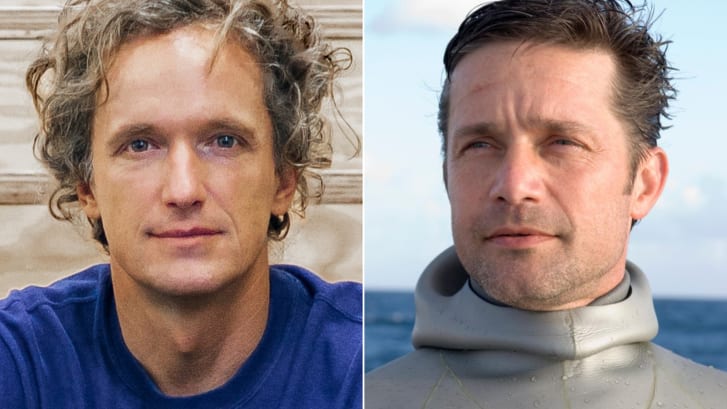|
The Dubai government has chosen a guerrilla marketing strategy to communicate awareness around the threat posed by world hunger to domestic audiences. The media and marketing arm of the Emirate of Dubai has teamed up with Publicis Groupe and Saatchi & Saatchi UAE to unleash a fleet of vehicles bearing empty license plates across the city to communicate the plight of an estimated 800 million people who suffer from hunger.  Coinciding with fasting during the month of Ramadan, the unheralded move provoked consternation among the public as they attempted to solve the mystery of whether they were seeing intelligence services at work or stolen vehicles. The stunt was raising awareness of literal empty plates, which cause millions to go hungry – an issue that has sparked the 1bn meals initiative by Mohammed bin Rashid Al Maktoum to ensure no one in the Middle East, Africa and South Asia need go hungry. To further this cause affluent Emiratis will be invited to bid for unique number plates, with the proceeds raised paying for meals to be given to the neediest including refugees, displaced people and anyone affected by a humanitarian or natural disaster.
0 Comments
When it became clear this month that multiple state agencies shared a single password for their emergency messaging systems — and that the password was posted online — some observers were not surprised. It was just the latest in a series of high-profile information technology failures to roil the Sunshine State. For more than two decades, Florida has struggled when it comes to information technology. Officials have created, abolished, and recreated a state technology office at least three times. Many of the state’s biggest projects have been marred by scandal and incompetence and cost hundreds of millions of dollars. “It’s really been a series of disappointments,” said Alan Shark, executive director of the Illinois think tank Public Technology Institute who co-wrote a book on best practices for state technology. That hit home for millions of Floridians earlier this year, when the online unemployment claims system, known as CONNECT, melted down under a historic wave of jobless claims triggered by the coronavirus pandemic. Experts are not entirely in the dark as to why Florida is so dysfunctional. For years, it was one of the only states in the nation that did not have a chief information officer. And its disjointed system of handling information technology needs across dozens of state agencies has caused headaches for bureaucrats and citizens alike. State lawmakers will likely consider spending tens of millions of dollars to shore up the unemployment claims system next legislative session. But experts say it will take a far greater effort to fix Florida’s long-standing woes. National experts say that no state is immune from information technology project failures. But they can be minimized with strong leadership from the governor’s office and coordination between the chief information officer, the Legislature and individual departments. “What is the best is when there is a view of what should technology look like across the state, and that there are mechanisms to coordinate that,” said Teri Takai, executive director of the Center for Digital Government and a former chief information officer for Michigan and California. Takai said the pandemic has been a “wake-up call” for every state, and many are scrambling to modernize their technology systems and prioritizing their chief information officers. In August, Governor Ron DeSantis named former state Rep. Jamie Grant to be the state’s next Chief Information Officer. Grant had an integral role in shaping the responsibilities and role of the state’s new technology agency, having sponsored the bill in the Legislature that created the office. His bill also relaxed the requirements needed to get the job. He wouldn’t have met the previous qualifications, which included requiring 10 years of “executive-level experience.” Grant, who did not respond to requests for comment made through the governor’s office, will not be fulfilling the kind of role Bush envisioned for the chief information officer, with broad oversight over projects across state government. But some experts said he might be in a unique position to be successful anyway, considering his potential to convince his former colleagues in the Legislature of his vision and develop his ties with DeSantis. “As he would say, he has the governor’s ear,” Takai said. “That’s extremely important.” Others were skeptical much would change. “We’re still doing things the way it was done 20, 30 years ago,” said David Taylor, the state’s chief information officer from 2008 to 2012. “Every year we get further and further behind.” Governor Jeb Bush, who held office from 1999 to 2007, took pride in being nicknamed the “e-governor.” He created a new state technology office to lead government into the 21st Century. His new office, led by a new chief information officer, was supposed to save taxpayers millions each year by negotiating contracts across state government, rather than by individual agencies, and ensuring project rollouts were compatible with one another. It was also supposed to transform the way Floridians interacted with their state government. Citizens could go to a single website to renew their driver’s licenses, apply for occupational licenses, register to vote. Like a state-run version of Amazon.com, the site would know who you were and what you wanted (or needed) when you logged in. State lawmakers, despite some skepticism, approved a 1,700-employee office with a $600 million budget. But to lead this historic effort, Bush did not seek out a national, state or even agency leader. Instead, he chose a guy who helped on his campaign, Roy Cales. It was doomed almost from the start. Instantly, questions were raised about the cozy ties between lobbyists representing technology companies and the state’s technology office. Bush’s choice to lead the office, Roy Cales, was arrested on an unrelated fraud charge and resigned less than two years later. His replacement, Kim Bahrami, dished out more than $170 million in contracts to two companies that were retracted after state auditors found the awards violated state laws. Bush did not respond to requests for comment. Cales couldn’t be reached for comment. Lawmakers quickly grew tired of the scandals. Within five years, they stripped the office of funding, effectively killing it. The state’s information technology system never recovered. In 2007, lawmakers created the Agency for Enterprise Information Technology. Five years later, they stripped it of funding. In 2014, then-Gov. Rick Scott created the Agency for State Technology in another attempt to coordinate information technology projects across the state. But lawmakers grew tired of the office awarding tens of millions in no-bid contracts, and effectively closed it last year. This year, Gov. Ron DeSantis created yet another office: the Florida Digital Service. None of those agencies have been able to stop two decades of fiascos with its large technology projects. Lawmakers during the 2020 legislative session passed a bill (HB 7009) to help carry out a 2018 constitutional amendment aimed, at least in part, at slowing the revolving door involving public officials and the private sector.
The bill to carry out what was Amendment 12 on the 2018 ballot will take effect Thursday. It was approved without debate or opposition in the House and Senate. Amendment 12 was among a handful of proposed amendments that passed after being put before voters in 2018 by the Constitution Revision Commission. The amendment received support from nearly 80 percent of voters. The bill deals with penalties for public officials and employees who abuse their positions and was passed after the Florida Commission on Ethics approved a rule that defined “disproportionate benefit.” Part of the constitutional amendment said a “public officer or public employee shall not abuse his or her public position in order to obtain a disproportionate benefit for himself or herself; his or her spouse, children, or employer; or for any business with which he or she contracts; in which he or she is an officer, a partner, a director, or a proprietor; or in which he or she owns an interest.” Two other parts of the amendment still require legislative action and aren’t set to become law until Dec. 31, 2022. One will extend from two years to six years the time in which lawmakers must wait after leaving office before lobbying legislators and other statewide elected officials. The change also puts similar prohibitions on former state agency heads and former judges. The second change prohibits public officials, while in office, from lobbying for compensation government agencies or the Legislature on such things as policies, appropriations and contracts.  Sixty feet beneath the surface of the Caribbean Sea, aquanaut Fabien Cousteau and industrial designer Yves Béhar are envisioning the world's largest underwater research station and habitat. The pair have unveiled Fabien Cousteau's Proteus, a 4,000-square-foot modular lab that will sit under the water off the coast of Curaçao, providing a home to scientists and researchers from across the world studying the ocean -- from the effects of climate change and new marine life to medicinal breakthroughs. Designed as a two-story circular structure grounded to the ocean floor on stilts, Proteus' protruding pods contain laboratories, personal quarters, medical bays and a moon pool where divers can access the ocean floor. Powered by wind and solar energy, and ocean thermal energy conversion, the structure will also feature the first underwater greenhouse for growing food, as well as a video production facility. The Proteus is intended to be the underwater version of the International Space Station (ISS), where government agencies, scientists, and the private sector can collaborate in the spirit of collective knowledge, irrespective of borders.  Industrial designer Yves Béhar (left) and Aquanaut Fabien Cousteau (right) Industrial designer Yves Béhar (left) and Aquanaut Fabien Cousteau (right) "Ocean exploration is 1,000 times more important than space exploration for -- selfishly -- our survival, for our trajectory into the future," Cousteau said over a video call, with Béhar. "It's our life support system. It is the very reason why we exist in the first place." The newly unveiled design is the latest step for this ambitious project. According to Cousteau, it will take three years until Proteus is installed, though the coronavirus pandemic has already delayed the project. Cousteau comes from a family of famous oceanographic explorers. He's the son of filmmaker Jean-Michel Cousteau and grandson of Aqua-Lung co-creator Jacques-Yves Cousteau. The project is a joint effort between the Fabien Cousteau Ocean Learning Center (FCOLC) and Béhar's design firm Fuseproject, as well as their partners, which include Northeastern University, Rutgers University and the Caribbean Research and Management of Biodiversity Foundation. While the project currently has some backing from the private sector, it is currently seeking further funding. Beyond backers, the station's wet and dry labs can be leased to government agencies, corporations and academic institutions. Part of the plan is to offer regular visibility about what is happening on Proteus, including live streams and VR/AR content. In this way Cousteau hopes to engage a wider audience. “Imagine if you found something amazing -- whether it be microcosmic like a pharmaceutical, or macrocosmic like the next greatest animal -- if you could show it to classrooms and universities," he said. "Our mission is to be able to translate complex science into something that the average person not only maybe will understand, but fall in love with." |
BLOGArchives
January 2025
Categories
All
|


